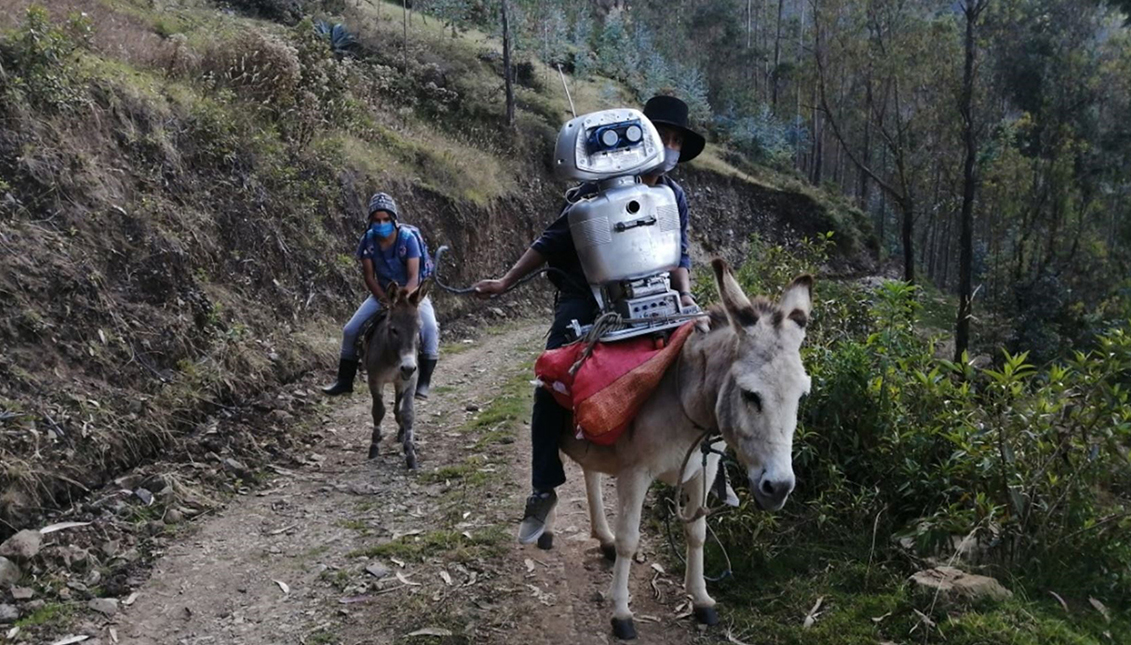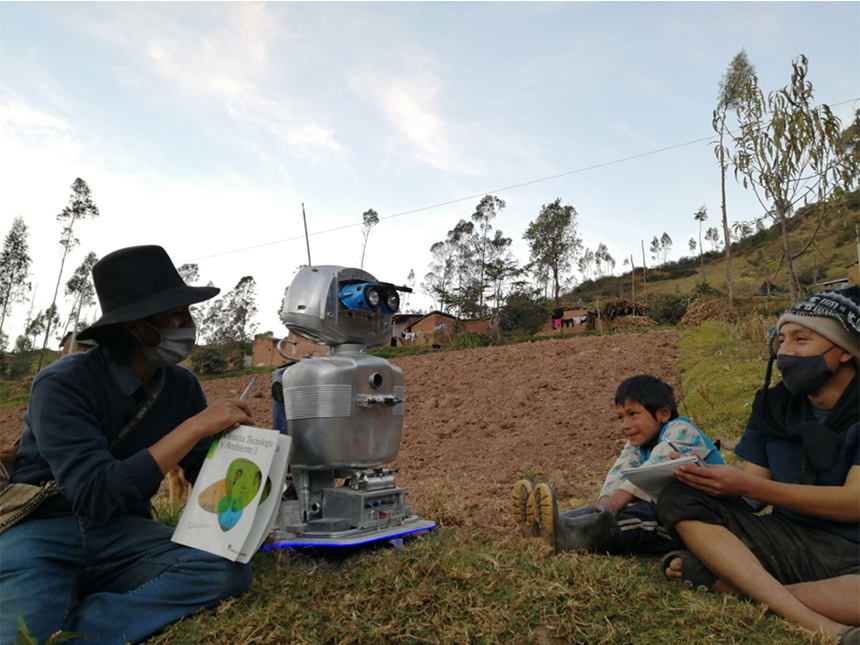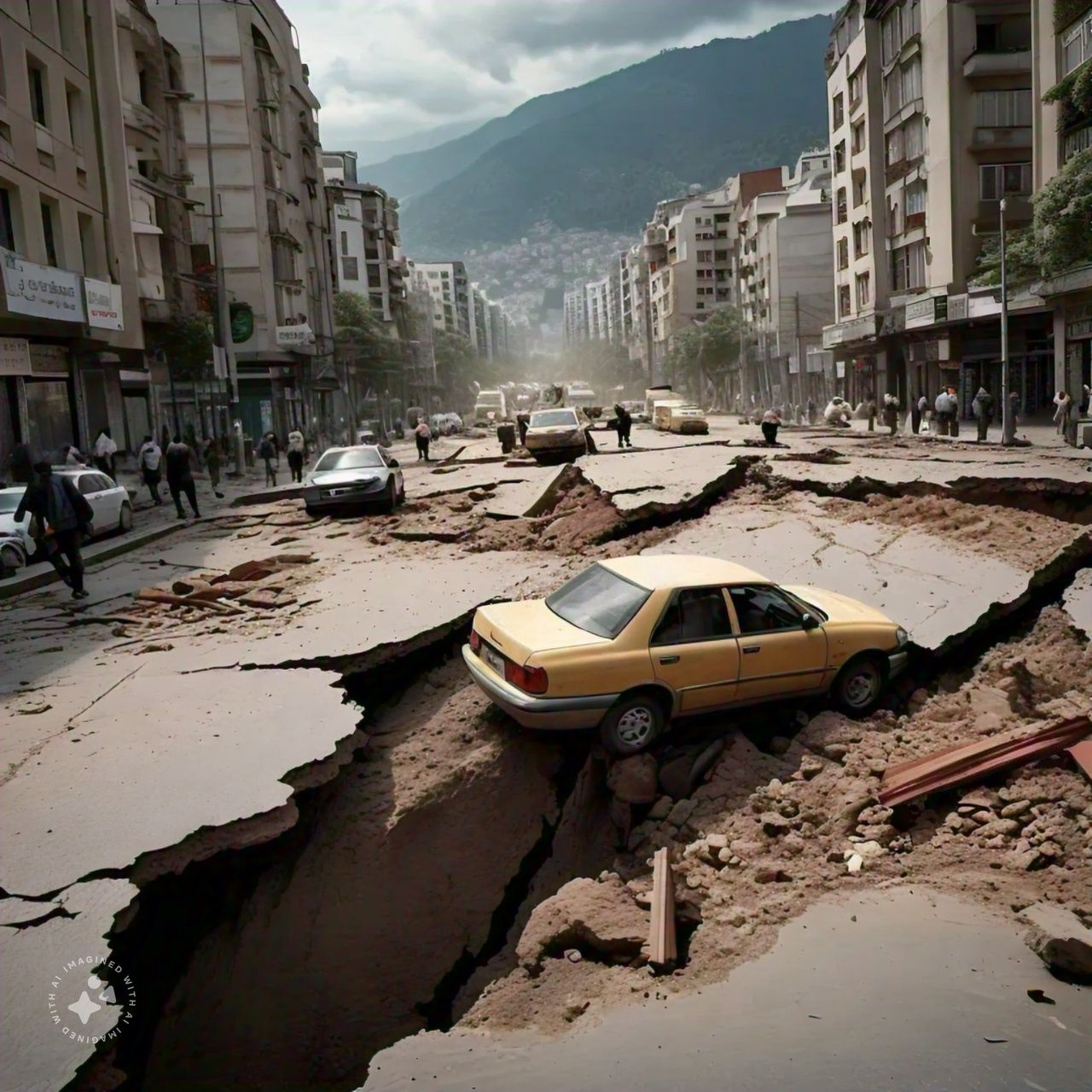
Kipi, the educational robot that travels the Peruvian Andes on a donkey
It is accompanied by its inventor, a teacher who, when the COVID confined his students to their villages, decided that he was not going to leave them without…
In Colcabamba, Huancavelica, a region 3,000 meters above sea level in central Peru, Walter Velasquez's students thought they were seeing a mirage when their teacher appeared on the back of a donkey accompanied by no less than a robot.
"I am a special robot. I was created and programmed to sing, dance and learn with students with special needs," said android Kipi, which in Quechua means "to carry" — as farmers do with their crops — and is given its name from the solar panel it carries as a backpack.
Kipi was created within four adobe walls, as Velásquez told EFE. In the laboratory of a very humble school in Colcabamba, the Santiago Antúnez de Mayolo, with the intention of awakening interest in technology and science among his students.
But when the pandemic forced the school to close and the students to return home, in rural areas where many had no access to the Internet, radio or television, Walter Velásquez and Kipi decided to embark on an adventure to care for at least half of those children whose families were unable to collect the educational materials provided by the Ministry of Education during the confinement, as well as the bags of breakfast from the government's social program.
"With so much poverty in those communities, where sometimes they don't have anything to eat, and they didn't come to collect the books and food. So either you stand around and spoil the food, or you do something and take it to them to eat," the teacher said.

He said if they couldn't go to school, then school had to travel to the communities, and began to walk the dirt roads with his inseparable teammate, the robot Kipi, who also doesn't need a battery.
RELATED CONTENT
"For me, it was very beautiful. Kipi is an Andean girl who carries positive and educational messages in the face of this pandemic. She travels and shares joy and hope. She is also very ecological, because she has a solar panel and recharges herself during the trip," said Velasquez, adding romantically: "In the 'qipi' many things are charged. Kipi charges their energy, joy and hope. I didn't give her a mouth because she has a speaker in her chest, as she speaks to us from her robotic heart."
At first the teacher had thought of repairing old radios so his students could follow the lessons of 'Aprendo en casa,' an educational radio broadcast by the government. However, soon after meeting a student with special needs, he realized it needed other messages of ecology, equality and hope, and that Kipi, who learns non-stop words in Spanish and Quechua, could be a great teacher.
So, controlled by mobile phone and thanks to several USB sticks, Kipi recites poems, stories and songs.
The dangers faced by this team of human and android to bring hope to the villages are many, as the province of Tayacaja, where Colcabamba is located, is on the very drug route that Peru exports and is home to a remnant of the Sendero Luminoso group.
"It is an area that is very much touched by narco-terrorism, poverty and risky behaviour. I had students with many problems. There are extreme cases and stories of my students that move me too much. Some have seen their parents shot dead or missing," said Velasquez.
What Walter and Kipi are trying to teach these kids is that "life is not made of evaluations."











LEAVE A COMMENT:
Join the discussion! Leave a comment.